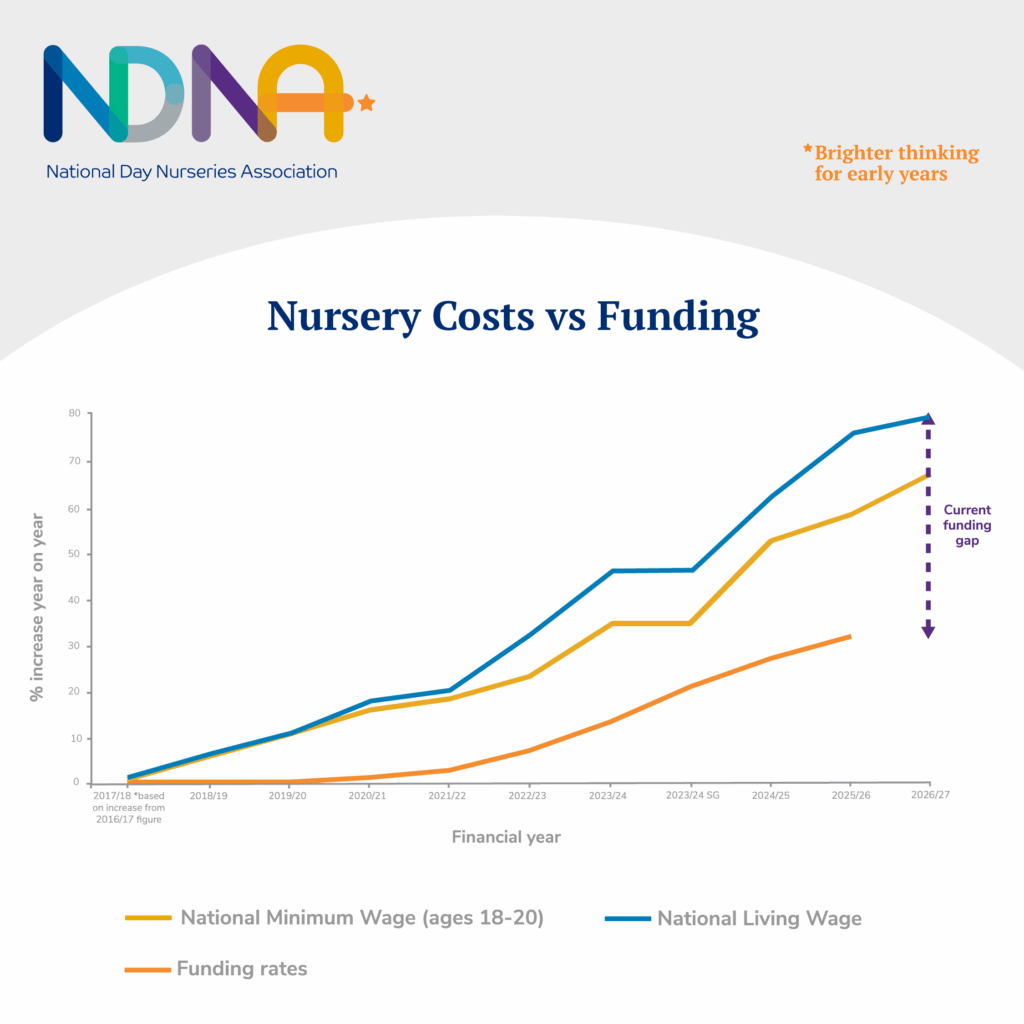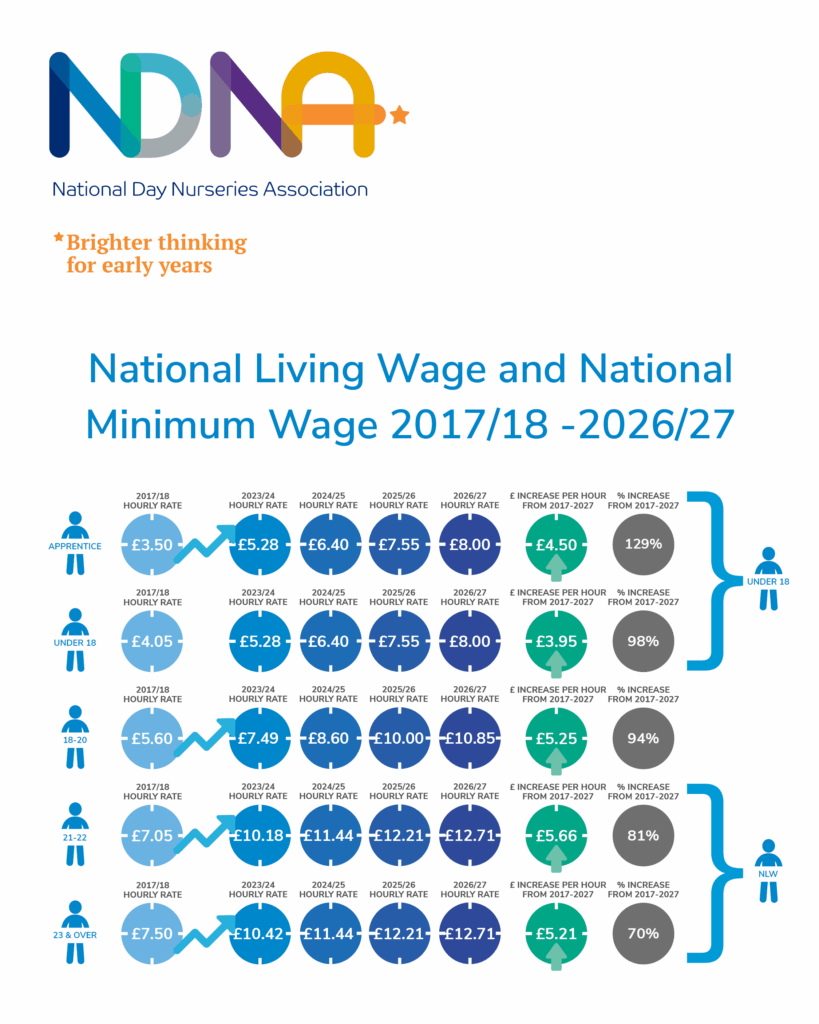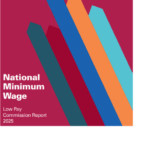
Nurseries need funding boosted to pay statutory wage rises from April
The Chancellor announced increases to the National Living and Minimum Wages on Tuesday 25 November, a day ahead of Budget Day. NDNA called for the government to boost funding rates to match wage increases and maintain pay differences.

Here are the new National Minimum Wage/National Living Wage rates from April 2026:
- From 1 April 2026, the NLW will rise by 4.1% to £12.71 per hour for eligible workers aged 21 and over. This will increase the gross annual earnings of a full-time worker on the NLW by £900.
- The NMW rate for 18–20-year-olds will also increase by 8.5% to £10.85 per hour, narrowing the gap with the NLW.
- The NMW for 16–17-year-olds and those on apprenticeships will increase by 6% to £8 per hour.
Purnima Tanuku CBE, Executive Chair and Tim McLachlan, Chief Executive of National Day Nurseries Association (NDNA), warned that:
“While this above inflation minimum wage increase will give an income boost for young people and those on low incomes, it’s very challenging for nursery businesses to absorb this increase along with other rising costs. The Government promised that early education funding from April will include any cost of living increases and rises to minimum wages. Unless this happens, it will be extremely difficult for early education providers to remain sustainable and invest in their staff.
“This wage increase is hot on the heels of the 6.7% rise last year and the unexpected employer NIC increases which left the average nursery with a 15% higher wage bill. Parents are suffering from the cost of living crisis so nurseries are trying hard to keep fee increases to a minimum.
“With the Government purchasing 80% of childcare places, they must ensure that early years funding rates enable nurseries to pay government-imposed wages but also to maintain pay differentials for more qualified and experienced staff. The gap is widening as wages rise and funding rates don’t keep pace. They must also factor in other rising costs such as business rates, energy and food.
“The reality is that higher minimum wages could reduce the number of jobs available as employers tighten their belts. With a recruitment and retention crisis in early years, this could be catastrophic, resulting in fewer places for children.”

- Budget
- Chancellor
- early years
- funding
- HMRC
- National Living Wage
- National Minimum Wage
- NDNA
- nurseries
Similar Articles
Government research shows school-based nurseries are not delivering flexible provision to its communities

One in seven childcare professionals paid around minimum wages


